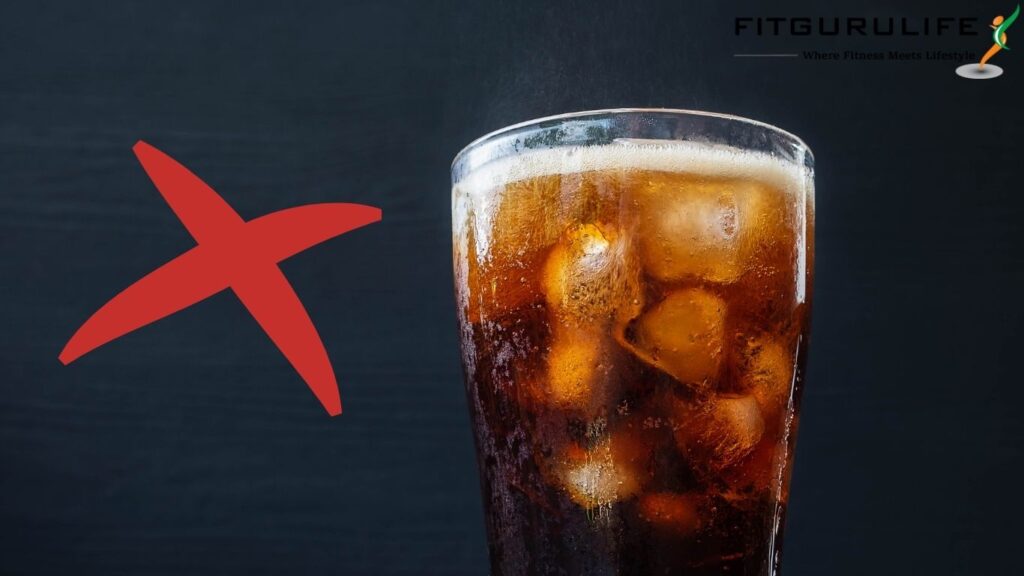When it comes to fitness and health, what we put into our bodies is just as important as the exercises we perform. While a well-structured workout plan is crucial for achieving fitness goals, the food and drinks we consume play a significant role in our overall progress. Unfortunately, carbonated drinks can often be a roadblock on our journey to fitness.
The Dangers of Sugary Carbonated Drinks
One of the most significant dangers of carbonated drinks is their high sugar content. A single can of soda can contain up to 10 teaspoons of sugar, which can quickly add up if you’re consuming multiple sodas throughout the day. This excessive sugar intake can lead to a variety of health problems, including obesity, type 2 diabetes, and heart disease.
But how does this relate to fitness? Well, sugar is a fast-acting carbohydrate that can provide a quick energy boost. While this might seem beneficial for a workout, the energy provided by sugar is often short-lived. After the initial energy spike, your blood sugar levels can drop rapidly, leading to fatigue and a decrease in performance. This can be detrimental to your workout, especially if you’re engaging in high-intensity activities that require sustained energy levels.
Furthermore, consuming too much sugar can lead to weight gain. When you consume more calories than you burn off, the excess calories are stored as fat. For those trying to lose weight or maintain a healthy body composition, consuming sugary carbonated drinks can be counterproductive.
The Impact on Muscle Growth
In addition to their sugar content, carbonated drinks can also have an impact on muscle growth. When we engage in resistance training, we create micro-tears in our muscles. These micro-tears then repair and grow back stronger, leading to muscle growth. However, this process requires proper nutrition, including an adequate intake of protein and other essential nutrients.

Unfortunately, carbonated drinks can interfere with this process. For one, the acidity of soda can leach calcium from your bones, which can lead to weakened bones and an increased risk of fractures. This is particularly concerning for those who engage in high-impact activities such as running or plyometrics.
Moreover, the caffeine content in some carbonated drinks can act as a diuretic, leading to dehydration. Proper hydration is crucial for muscle function, and even mild dehydration can impair performance and hinder muscle growth. Dehydration can also lead to cramps, which can be debilitating for those trying to achieve their fitness goals.
The False Promise of Diet Sodas
Many people turn to diet sodas as a way to enjoy the fizziness of soda without the added sugar. However, diet sodas come with their own set of problems. While they may be low in calories and sugar, they often contain artificial sweeteners, which can have a negative impact on your health.
Research has shown that artificial sweeteners can disrupt the balance of bacteria in your gut, leading to digestive problems and inflammation. Inflammation can hinder the body’s ability to absorb nutrients, which can be detrimental to muscle growth and overall performance. Furthermore, artificial sweeteners can increase cravings for sweet foods, which can make it harder to stick to a healthy diet.
The Role of Hydration in Fitness
As mentioned earlier, proper hydration is crucial for achieving fitness goals. Water plays a vital role in nearly every bodily function, including muscle contraction, joint lubrication, and temperature regulation. When we’re dehydrated, these functions can be impaired, leading to decreased performance and an increased risk of injury.

Unfortunately, carbonated drinks are not an ideal source of hydration. While they do contain water, the caffeine and sugar content can actually lead to dehydration. Moreover, the bubbles in carbonated drinks can make you feel full, which can prevent you from drinking enough water throughout the day.
Alternatives to Carbonated Drinks
So, what can you drink instead of carbonated drinks? The best option is plain water. Water is calorie-free, hydrating, and essential for overall health and performance. If you find plain water boring, you can add a slice of lemon or lime for some natural flavor.
Another good option is herbal tea. Herbal teas are low in calories and can be enjoyed hot or cold. They also come in a variety of flavors, so you’re sure to find one that you like. If you’re looking for a caffeine boost, green tea is a great option. It contains antioxidants that can improve health and performance, and the caffeine content is much lower than that of coffee or soda.

Conclusion
Carbonated drinks can be a significant roadblock on your journey to fitness. Their high sugar content, acidity, and potential for dehydration can undermine your workout goals and overall health. Instead of reaching for a soda, opt for water or herbal tea to stay hydrated and support your fitness journey. Remember, what you put into your body is just as important as the exercises you perform, so make sure to prioritize proper nutrition for optimal results.
Also read: Supplement vs. Whole Food: Which Natural Approach Is Better for Muscle Building?https://fitgurulife.com/2023/10/05/supplement-vs-whole-food-which-natural-approach-is-better-for-muscle-building/
